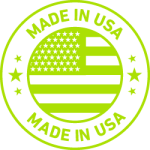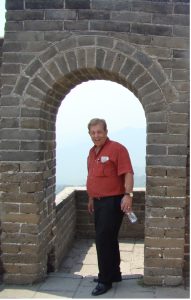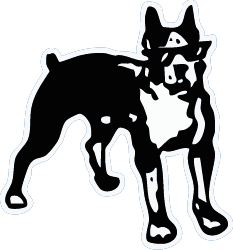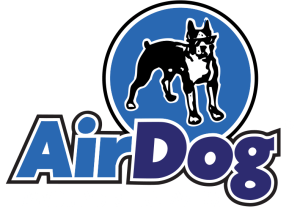

As the leading name in diesel fuel filtration technology, AirDog® and its parent company PureFlow Technologies provide heavy-duty diesel engine users with industry-leading fuel filtration solutions. But AirDog® didn’t start out at the head of the pack—it started as an idea of innovator Charles “Charlie” Ekstam, who wanted to protect the investment in his truck and thought there had to be a better way. His commitment to sound engineering and practical solutions served as the foundation of everything that came after.
Charlie invented the Fuel Preporator to protect his diesel engine from contaminants, including entrained air. The system he developed allowed him to deliver clean, air-free fuel at optimal pressure to the engine, which in turn provided improved performance, fuel efficiency, engine life, and more.
AirDog®diesel fuel system technology has continued to advance over the years to provide ever-improving performance. But none of it would have been possible without the inspiration and hard work of a man with a vision.

In the early 1990s, Charlie was making at least part of his living driving a commercial heavy-duty truck. He was also reading regularly about different service topics to keep on top of the technology of the time. Companies like Caterpillar and Cummins were publishing reports about common issues in trucking, one of which was entrained air in diesel fuel. Charlie started digging into the topic, trying to discover the finer details of what entrained air did to engines and overall efficiency.
While on a run in the mountains out west, he made note of the effects of pressure differentials and made a connection between his observations and the overall problem of entrained air. He got to thinking about the whole fuel system and how low fuel pressure could affect the engine. Charlie decided to experiment to see if he could address the problem of air in the fuel system and make his and other trucks run better—putting money back in everyone’s pockets and helping engines last longer.
Charlie’s work on the problem took several years of trial and error, including building a number of prototypes, using them on trucks, and eventually finding a solution he was happy with. He named what he created the “Fuel Preporator(™).”
Charlie’s first complete Fuel Preporator(™) system included the main components that make up AirDog® systems today. These included an integrated lift pump that pulled fuel from the tank, components to remove water, particulates, and entrained air from the system, and continued pressurization from the pump to ensure net positive pressure all the way to the fuel injectors.
Standard fuel filters at the time—and still today—use an engine-mounted, gear-driven fuel pump to pull fuel from the tank. The suction generated by the gear pump is enough to get the fuel from the tank, through the filter, and onto the fuel injectors, but it also introduces air/vapor into the system and does little to improve fuel efficiency. Charlie realized that it wasn’t enough to remove air from the system, he also had to keep it out as the fuel went from filter to engine. The pump he added to the Fuel Preporator(™) system solved that problem by maintaining positive pressure throughout the process.
The positive pressure provided by the lift pump also addressed the problems Charlie had observed with pressure differentials. With all air removed from the fuel and kept out after filtration, there was no air for pressure differentials to act on. Pure, pressurized fuel was achieved and maintained at a constant rate.
Although the system Charlie designed and sold was first trademarked as the Fuel Preporator(™), in the early 2000s the company rebranded to the AirDog® name. Removing air from the system was the main priority, and the AirDog® name resonated with the users and helped the brand reach new audiences. PureFlow Technologies now has a variety of fuel air separation systems trademarked under the name AirDog® for all makes and models of diesel engines used in the majority of industries, ranging from land to rail to sea.
The AirDog® name represents the broader scope of technological refinement and market appeal of everything that PureFlow offers. It moves the already high bar set by Charlie and the Fuel Preporator(™) to new heights and continues to do so with each new iteration of the technology. Today, our company is known as a go-to resource for fuel efficiency solutions and diesel performance enhancements, delivered through the highest quality fuel air separation systems.
AirDog® is never going to make changes just for the sake of selling new products. Every new generation of AirDog® brings improvements to the technology, many of them based on solving problems for existing users. AirDog®’s engineers learn about issues customers are having with the product and apply their abilities to solve those problems. That ongoing effort has led to the current, 5th generation AirDog® model, which now uses the most advantaged filtration systems ever developed for AirDog® and even better pump efficiency than in previous models.
Tank sloshing and the introduction of air and vapor into the fuel during normal vehicle operations was a problem then and is still a problem now. When air bubbles and/or vapor are present in diesel fuel as it reaches the fuel injectors, injection is delayed until the air/vapor is compressed sufficiently to provide enough pressure to travel through the injectors. This delayed fuel injection creates problems like retarded injection timing, which result in issues like increased exhaust emissions, increased fuel consumption, and lower power output. Eventually, the repeated presence of air and vapor can cause the fuel injectors to fail.
AirDog®’s technological advancements in diesel fuel filtration systems and emission reduction technologies have delivered a host of improvements, including:
AirDog®’s innovations have proved timely for diesel engine technology at large. The introduction of ultra-low sulfur diesel (ULSD) requirements has helped usher in a new age of high-efficiency diesel engines with high tolerance designs that take advantage of cleaner fuel. These engines perform truly impressive feats, delivering better power and acceleration with lower emissions and fuel usage than ever before. However, they are also more sensitive to contaminants and are only capable of operating at peak efficiency with very clean fuel. AirDog® helps provide that clean fuel.
AirDog® continues to improve to meet the changing needs of the diesel engine by developing diesel engine longevity solutions. Although we are extremely proud of what we have accomplished with our 5th generation fuel filtration system, we are not going to stop innovating just because we have seen some success. Our passion is focused on always improving and adapting to the changes that are inevitable in the world of diesel engines. As innovations in diesel engines continue to develop, so will AirDog® systems continue to see enhancements and evolution.
AirDog® will always be there to safeguard the engines that power our country and fuel the livelihood of truckers and their families. Charlie wanted to help truckers get the most out of their engines by optimizing commercial trucking efficiency and the team at AirDog® continues to focus on that vision.
We encourage you to keep reading our blog and to comment in the comment section. We’d love to hear about any personal experiences with AirDog® systems. And, as always, feel free to reach out with any questions and we will do our best to answer them for you.


Heavy-duty diesel fuel systems from AirDog will help increase your mileage and injector life by removing water, vapor and contaminants. Made in the USA since 1990.
PUREFLOW™ TECHNOLOGIES, INC.
5508 Business 50 West
Jefferson City, MO 65109
© 2025. All rights reserved.
Site by Zimmer Communications